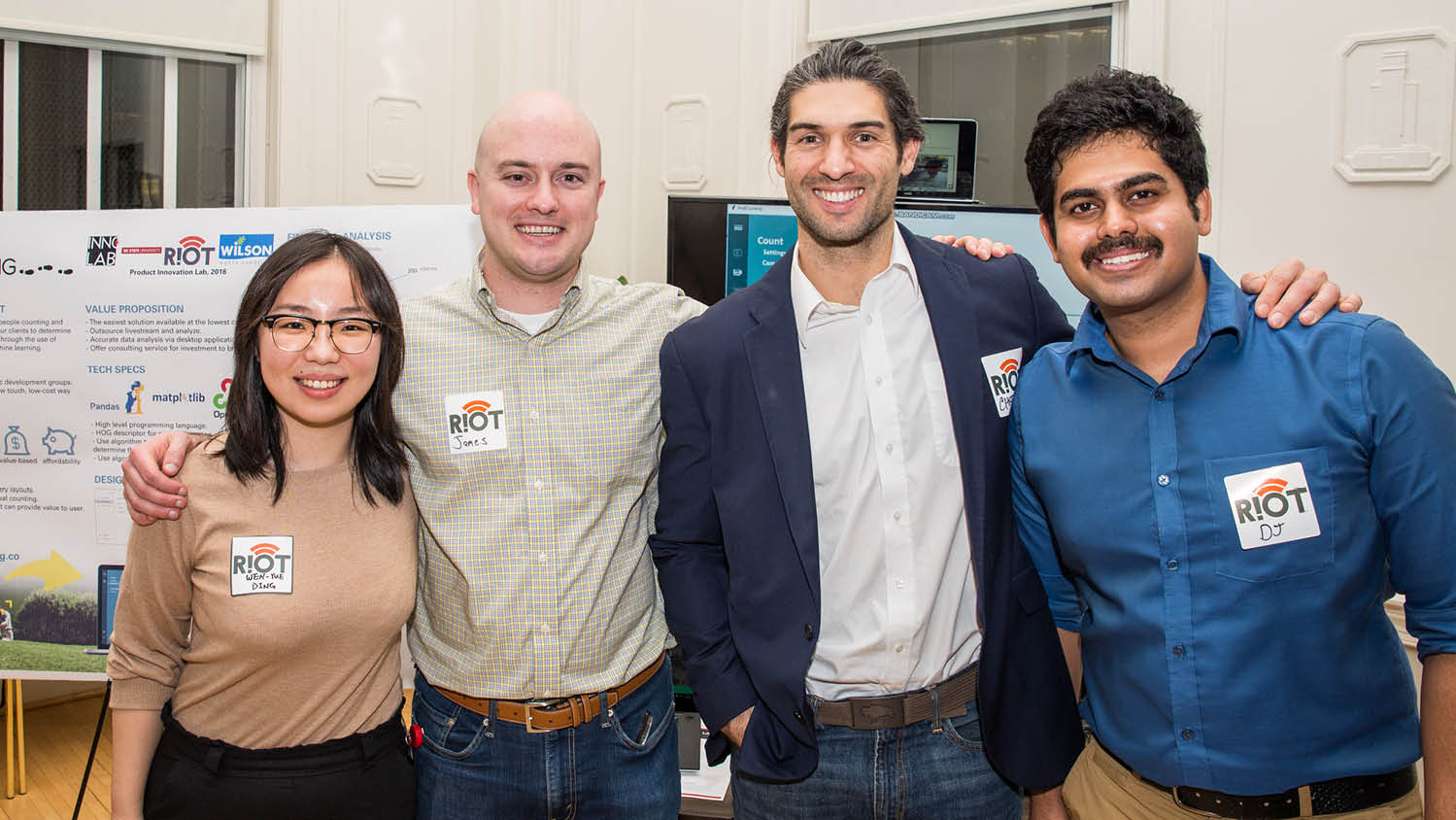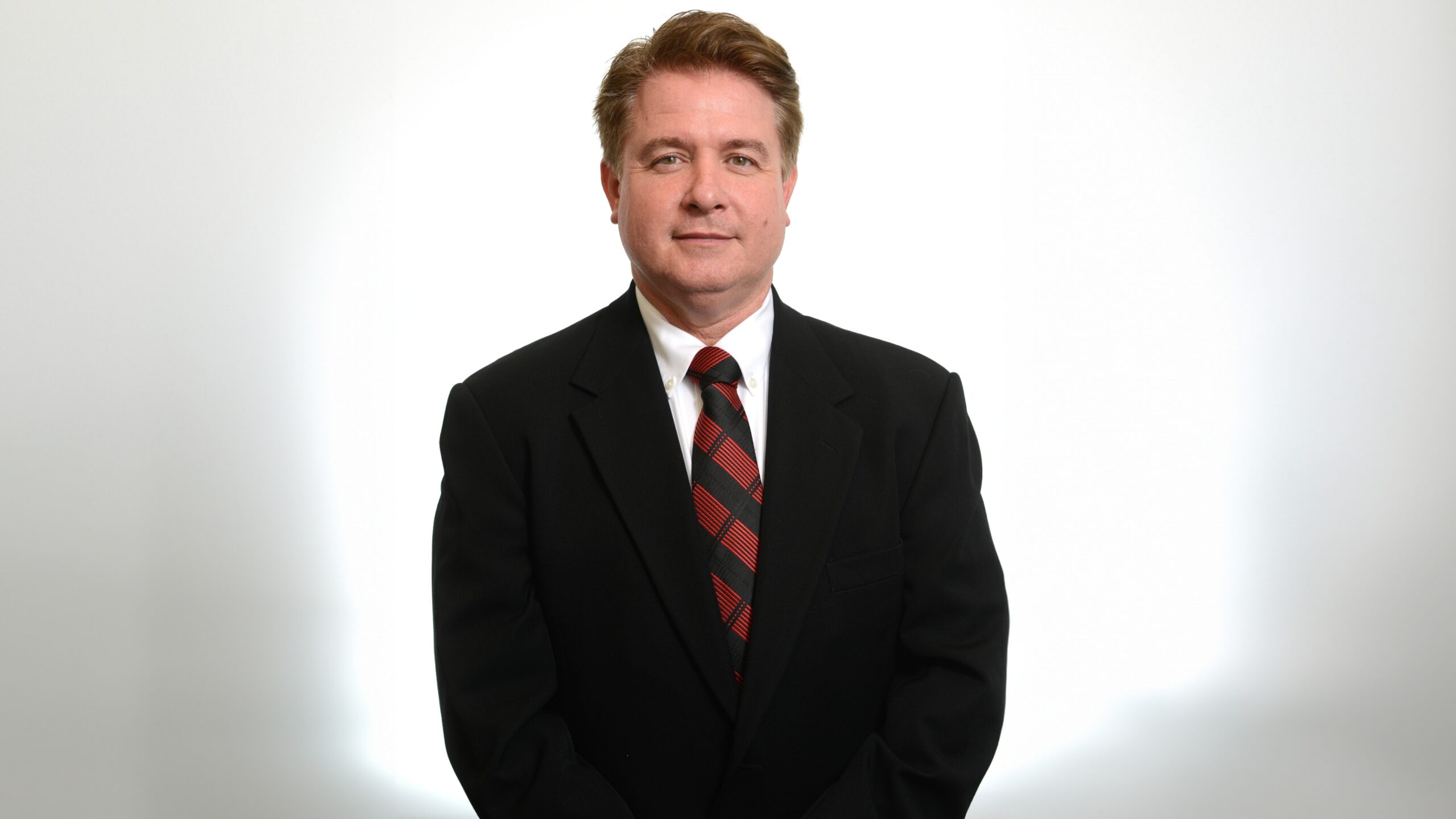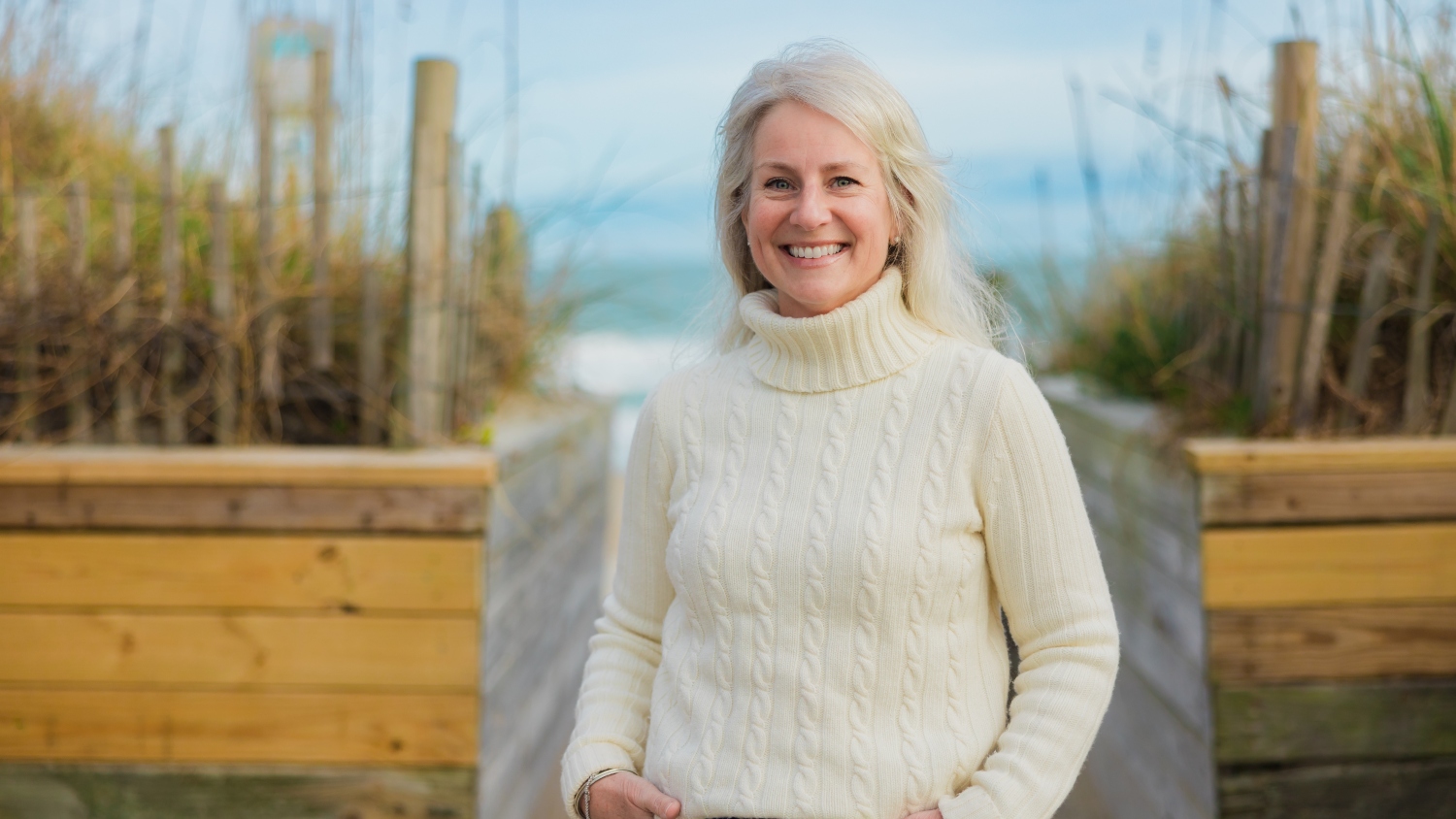The Price of an Education

Roughly ten months after Chris Hoina received his Jenkins MBA from NC State’s Poole College of Management, he shared some important news on social media.
In that short time Hoina had managed to pay off $40,000 in student loans, along with his credit card balance and the loan on his 2016 car.
Hoina said it’s all about establishing goals and maintaining discipline. He wrote on Instagram that he lived like a hermit and focused on those goals. While it wasn’t always easy, it paid off.
“It was really hard,” he said. “People would go out to eat, or go out of town – I couldn’t do that.
“Once I established those goals, it was easier to say, is this going to bring me closer to that goal or is it going to move me further away from that goal.”
It was often about asking himself, “do I really need this?” Hoina said. His phone has cracks up and down the front, but it still works. He’s in the same jeans he’s had for four years, but didn’t really need a new pair.
“It’s about discipline,” Hoina said. “You have to be ok with being antisocial; be ok with saying no, and continuing to say no.”
Yet, those eager to duplicate his plan may be surprised by his advice.
“If I was to do all this all over again, I really couldn’t say, because it was such a huge gamble,” Hoina said. “It makes sense to enter a grad program with some sense of financial stability – whether it’s a buffer to live off of, or you move back in with your parents to save money.”
He’s quick to say that no one can rely on what they’ll make post-MBA, and admit that his way doesn’t guarantee success.
Hoina’s unique background includes four years in the Air Force, followed by work with the Olympic Development Team for Skeleton, a winter Olympic sport that involves a race headfirst down an ice track on a small sled.
He received a bachelor’s degree in criminal justice, finishing that shortly after he left the Air Force. Later, he earned a master’s degree in Human Movement Science (now referred to as kinesiology). Though he considered a career in sports performance coaching, Hoina said he couldn’t see himself doing that long-term.
Instead, following in the footsteps of his father who was in law enforcement, he joined the Cary Police Department. As he came to understand the job and his role within the first year there, Hoina said he was glad he’d taken the job but didn’t see it as a 30-year career.
Though he admits his path to that point might appear otherwise, Hoina said he doesn’t enjoy jumping from job to job and envisioned himself finding a company where he could move through different roles within that organization. As he began to circulate his resume, however, he found he wasn’t getting the offers he hoped for based on what he thought he could offer a company.
“It was really demoralizing,” Hoina said. “So I did what a lot of people do in situations like that, I realized I have to go back to school.”
But this time, it was different. His undergraduate degree was paid for in large part through access to the Montgomery GI Bill – designated to help veterans pay for their education – as was much of his first master’s degree.
As a working adult, Hoina began to do the math – looking at paying for his MBA on top of his regular expenses such as his mortgage and car payment. He’d accumulated some debt during his time traveling with the Olympic Development Team, and most of that was on credit cards.
With all of that in mind Hoina planned to wait another year to pursue his MBA in order to pay off some debt. But he received an email from the Jenkins MBA program indicating applications for the next MBA class were still open. He was offered a spot a year earlier than planned, but thought he would defer to better prepare financially.
When he was offered a financial aid package and stipend as a graduate assistant that paid for his MBA experience, Hoina decided to move forward. Still, over the next two years he took out two $20,000 loans to cover his living expenses as he attended school full-time.
“It was a fantastic experience – probably the best formal education experience that I’ve ever had,” he said. “Having worked for a year now outside of it, I can definitely say I was more than prepared to do the kind of work that I’m doing.”
Hoina admits it was challenging as well, particularly his first semester. He’d had no business-related courses in his undergraduate or previous graduate degree, and said there was a learning curve. In particular he struggled with financial accounting, but also learned an important lesson.
“If at any time you’re unclear, just address it right there,” Hoina said. “Don’t think you’ll figure it out as you go – I recognized I couldn’t connect those dots on my own.”
He said he wasn’t afraid to ask questions, and if he felt his understanding wasn’t on par with his classmates, he’d go back and spend more time on the subject matter.
It all paid off. Midway through his second year, Hoina had two competing offers from NetApp and IBM, selecting IBM because he saw a better career trajectory in the future.
Heading into his last semester with a job secured and just ten credit hours left in his degree, Hoina began to do the math.
“I had already been living like a pauper for two years,” he said. “And we’re adults, I knew the bills weren’t going to go away.”
He’d come from humble beginnings – his mother had immigrated from El Salvador when she was 18 and his father was a union carpenter before going into law enforcement, so he felt comfortable living frugally.
“I didn’t come from wealth – to me it was a foreign concept to go on trips, and go out to eat all the time,” Hoina said. “I think that actually benefitted me in the long run.”
He sat down and planned his monthly income and living expenses.
“Once I figured out my expenses, everything went toward paying off credit cards and paying off student loans,” he said.
But at the same time, he admits he had no emergency fund.
“I was treading water – I can’t get sick, I can’t get hurt, I can’t lose my job,” Hoina said.
Which is why, in the end, his advice is to have a financial plan before beginning a graduate program.
“I was very cavalier about it,” Hoina said. “I knew it was the right thing for me to do, but maybe didn’t go about it the right way.”


